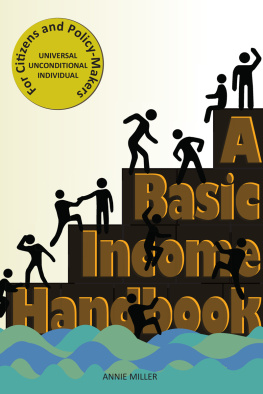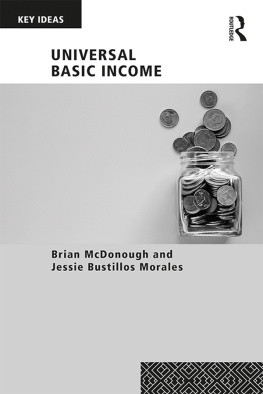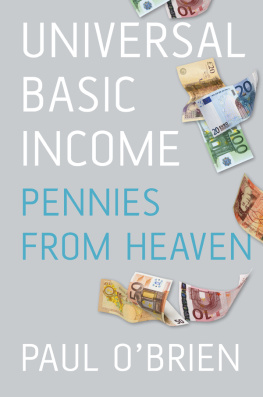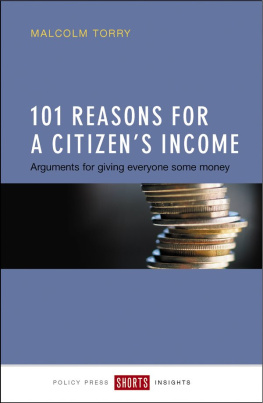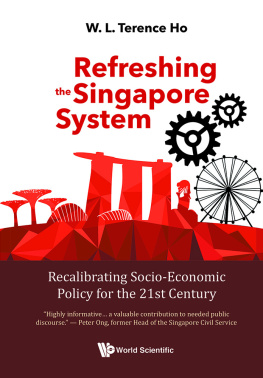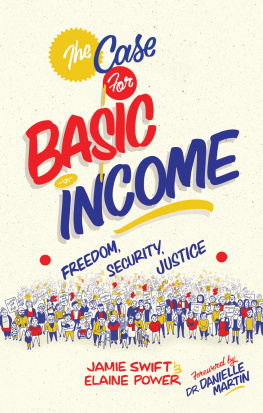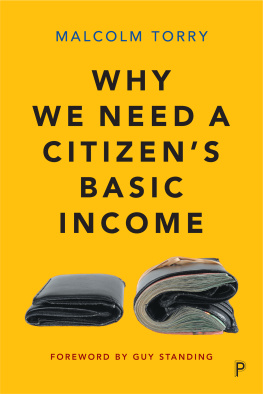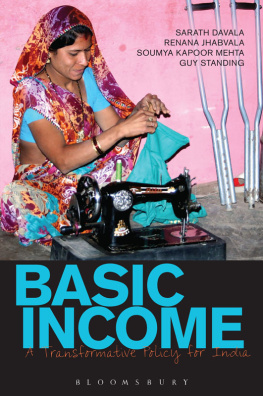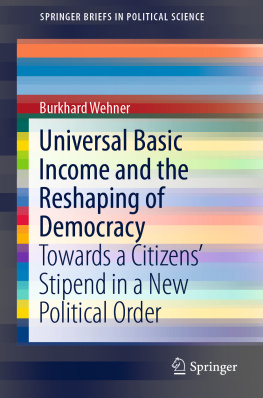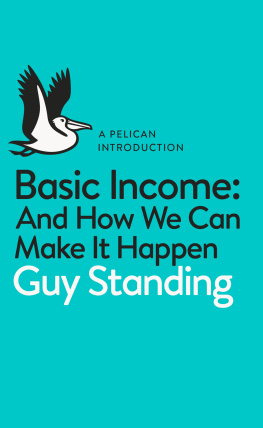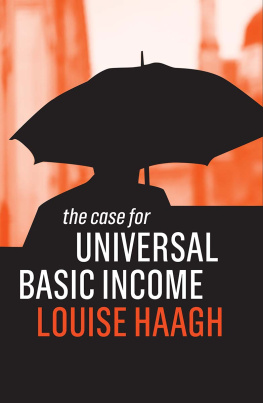
ANNIE MILLER spent the major part of her working life in the Department of Economics at Heriot-Watt University in Edinburgh teaching mainly business economics, econometrics, mathematics and statistics for economists. In 1991, with her colleague Douglas Mair, she co-edited a book comparing different schools of economic thought in the late 20th century (Mair et al, 1991).
In 1984, Annie was a co-founder of the Basic Income Research Group (BIRG), which changed its name in 1993 to the Citizens Income Trust (CIT). She has been a trustee since 1989 and is currently its Chair. She contributes regularly to its Citizens Income Newsletter. She gives talks to groups around the UK, and has presented papers on BI at conferences here in the UK, on the continent and in North America.
In January 2014, her local MSP, Jim Eadie, hosted a seminar and round-table discussion on Beyond Welfare Reform to a Citizens Income at the Scottish Parliament, at which Annie and the late Professor Ailsa McKay were keynote speakers. In her personal capacity, she presented written evidence to the Scottish Parliaments Expert Working Group on Welfare (2013) and to the Smith Commission (2014). Since politics in Scotland is now different from elsewhere in the UK, her fellow trustees at CIT encouraged her to set up a sister organisation in Scotland, the Citizens Basic Income Network Scotland.
Annie became a member of the Religious Society of Friends (Quakers) in 1978. Her faith, her belief in that of God in everyone, and her commitment to the Quaker testimonies (values) of peace, equality, integrity and simplicity inspire all her work.
In this vital contribution to the debate about how we ground our welfare system more squarely on social justice, Annie Miller has done Scotland and the UK a service. It combines personal reflections with passion and technical adeptness, making the case for a Universal Basic Income powerfully in the process. Amongst many other achievements, this work presents the under-articulated feminist case for change a vital component of the debate that should be more central. To be highly recommended.
ANTHONY PAINTER, Director of the Action and Research Centre, Royal Society for the Encouragement of Arts, Manufactures and Commerce
Annies book comes at the ideal moment in the Basic Income debate. With interest growing around the world, and progress taking place here in Scotland, the depth of economic knowledge that she brings to the debate will be invaluable in taking the idea forward.
JAMIE COOKE, Head of RSA Scotland
Annie has written not just a great introduction to the theory and background of Universal Basic Income, but a manual on the issues and opportunities for taking forward the practical implementation of basic income.
PAUL VAUGHAN, Head of Community and Corporate Development, Fife Council
At last! A book that helps us through the tangled dross to the pure gold of a Universal Basic Income.
JIM PYM, author of The Pure Principle

First published 2017
All royalties to be shared between
Citizens Basic Income Network Scotland, scio no. sc046356, www.cbin.scot and
Citizens Basic Income Trust, charity no 1171533, www.citizensincome.org
ISBN : 978-1-910745-78-6
The paper used in this book is recyclable. It is made from low chlorine pulps produced in a low energy, low emissions manner from renewable forests.
Printed and bound by
Bell & Bain Ltd., Glasgow
Typeset in 11 point Sabon by
3btype.com
The authors right to be identified as author of this work under the Copyright,
Designs and Patents Acts 1988 has been asserted.
Annie Miller 2017
This book is dedicated to the memory of the late
Professor Ailsa McKay
19632014
Contents
List of Figures
List of Tables
List of Abbreviations
AIDS Acquired immune deficiency syndrome
AHC After Housing Costs have been deducted
BHC Before Housing Costs have been deducted
BI Basic Income
BIEN Basic Income European/Earth Network
BIRG Basic Income Research Group
Blue Book UK National Accounts, the Blue Book, published each year.
CB Child Benefit
CBI Citizens Basic Income/Child Basic Income
CBINS Citizens Basic Income Network Scotland
CI Citizens Income
CIA Central Intelligence Agency (USA)
CIT Citizens Income Trust/Citizens Basic Income Trust
CTB/CTR Council Tax Benefit/Reduction
CTC Child Tax Credit
DWP Department of Work and Pensions
EDR Earnings Disregard
ESA Employment and Support Allowance
EU European Union
FBI Full Basic Income
FES Family economies of scale
GDP Gross Domestic Product
HB Housing Benefit
HBAI Households Below Average Income
HES Household economies of scale
HH Household
HIV Human immunodeficiency virus (infection)
HMRC Her Majestys Revenue and Customs
HMSO Her Majestys Stationary Office
HSHLD Household
IS Income Support
JSA Jobseekers Allowance
KELA Social Insurance Institution of Finland
LA Local Authority
LEL Lower Earnings Level (NI system)
MDR Marginal Deduction Rate
MIS Minimum Income Standards
MISUR Maternity, Invalidity, Sickness, Unemployment, Retirement (NI)
MP Member of Parliament (Westminster)
MSP Member of the Scottish Parliament.
MTB Means-tested benefit
NGO Non-Governmental Organisation
NHS National Health Service
NI/NIC National Insurance/National Insurance Contribution
NIT Negative Income Tax
NMW/NLW National Minimum Wage/National Living Wage
NPISH Non-Profit Institutions Serving Households
OECD The Organisation for Economic Co-operation and Development
ONS Office of National Statistics
PAYE Pay As You Earn
PBI Partial Basic Income
PI Participation Income
PT Primary Threshold, (NI system)
PWC Parent with care (primary care-giving parent)
S2P State Second Pension
SCIO Scottish Charitable Incorporated Organisation
SERPS State Earnings-Related Pension Scheme
SNAP Scottish National Accounts Project
STP Single Tier Pension
TC Tax Credit
UBI Universal or Unconditional Basic Income
UC Universal Credit
UEL Upper Earnings Level (NI system)
WTC Working Tax Credit
WWII World War Two
Y-BAR Mean gross income per head of man, woman and child
A note about terminology
A BASIC INCOME (BI) is a cash payment where assessment and delivery is based on the individual. It is universal for a defined population, is not means-tested, not selective except by age, and it is unconditional.
The concept has a fairly long history (see the Chronology in .
Another Nobel Prize-winning economist, James Meade, used the term Social Dividend from 1935, but implied different things at different times sometimes as a needs-based system and sometimes as a payment to everyone with no differentiation. Social Dividend was the term commonly used until the early 1980s. Since the 1980s, the term used in the English-speaking world has been Basic Income, although in the USA it is often referred to as a Basic Income Guarantee (BIG). Some people dislike the term Basic Income, because it sounds too basic, and yet that is really what it is about. The Basic Income Research Group agreed to change its name to the Citizens Income Trust (CIT) in 1993. It is the only organisation that has consistently used the term Citizens Income (CI), and this is recognised in the UK. Professor Ailsa McKay always referred to a Citizens Basic Income (CBI), and the founding group of the new Scottish charity chose to use this term too, with its emphasis on citizenship. The terms CI, CBI and BI can be used interchangeably.
Next page
